Granite Countertops – Top 12 Questions Answered
1. Are granite countertops in style?
Yes, granite is a popular choice for new homes and remodels. Why? Warmer tones are being selected in remodels, and new home builds. Granite complements many color palettes chosen for cabinets and colors throughout the home. In the recent Parade of Homes in Madison, WI, several houses had selected granite for their kitchen, vanities, and bar countertops. You can also mix it up by choosing a granite island and quartz perimeter countertops or the other way around. When it comes to granite, there are so many color and design options, making granite a great choice.
2. Where does granite come from?
Granite is found deep in the earth—the color and patterns in granite result from millions of years of development. Granite is primarily imported from Brazil, India, China, and Italy. Most of the granite comes from Brazil and India.
3. How is granite quarried?
Removing stones from the mountain is not an easy task. The process of mining granite begins with cutting a large block of stone from the quarry. The blocks weigh up to 42,000 pounds. Diamond wire and gang saws are used to cut through granite blocks to create individual slabs. Water is used when cutting to keep the stone and tools cool. Once cut and cooled, a resin coating fills minor fissures and strengthens the granite slab. Next, the granite slab is polished and ready to be shipped. Pictured is a marble quarry, but the granite quarry’s resemblance is similar.
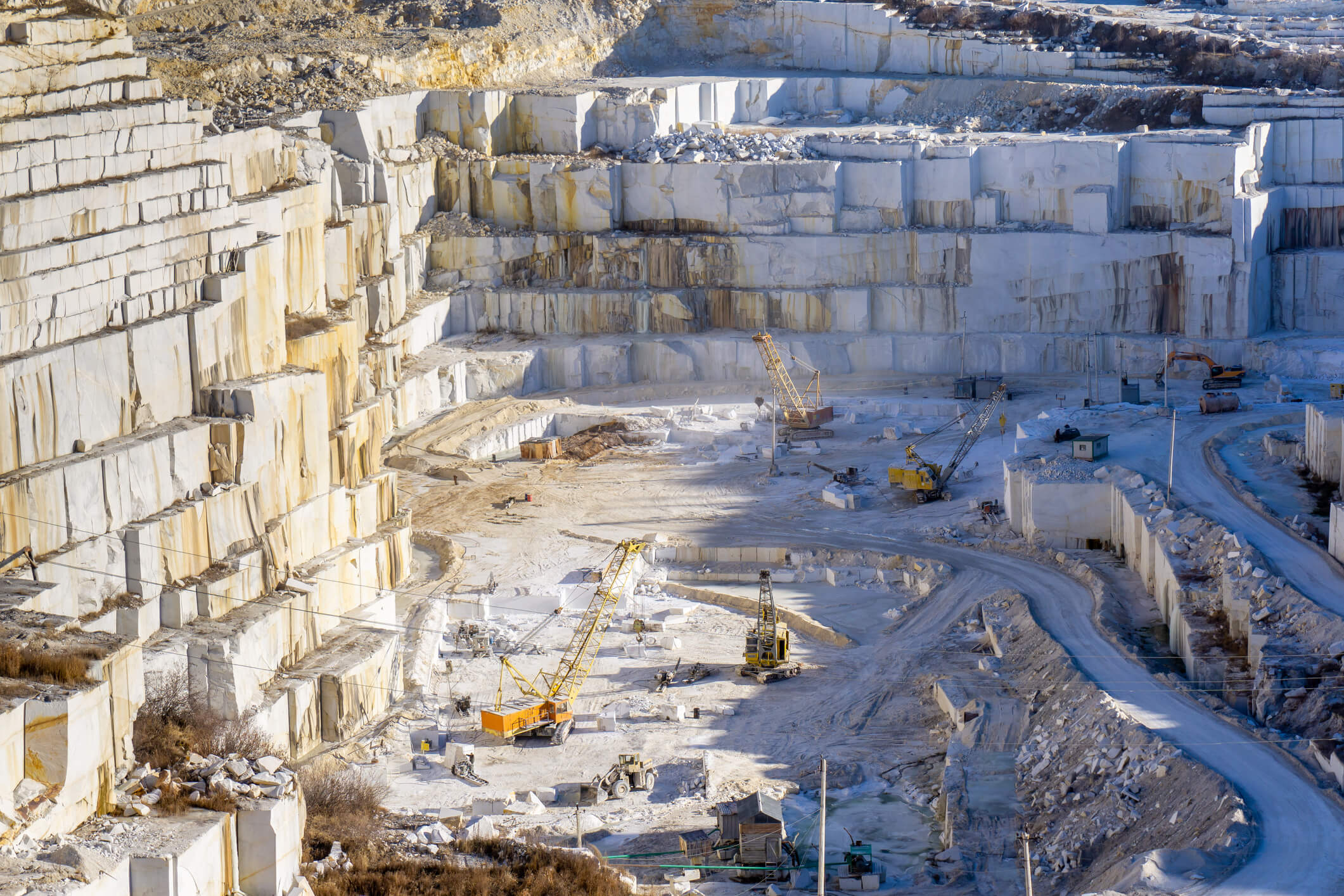
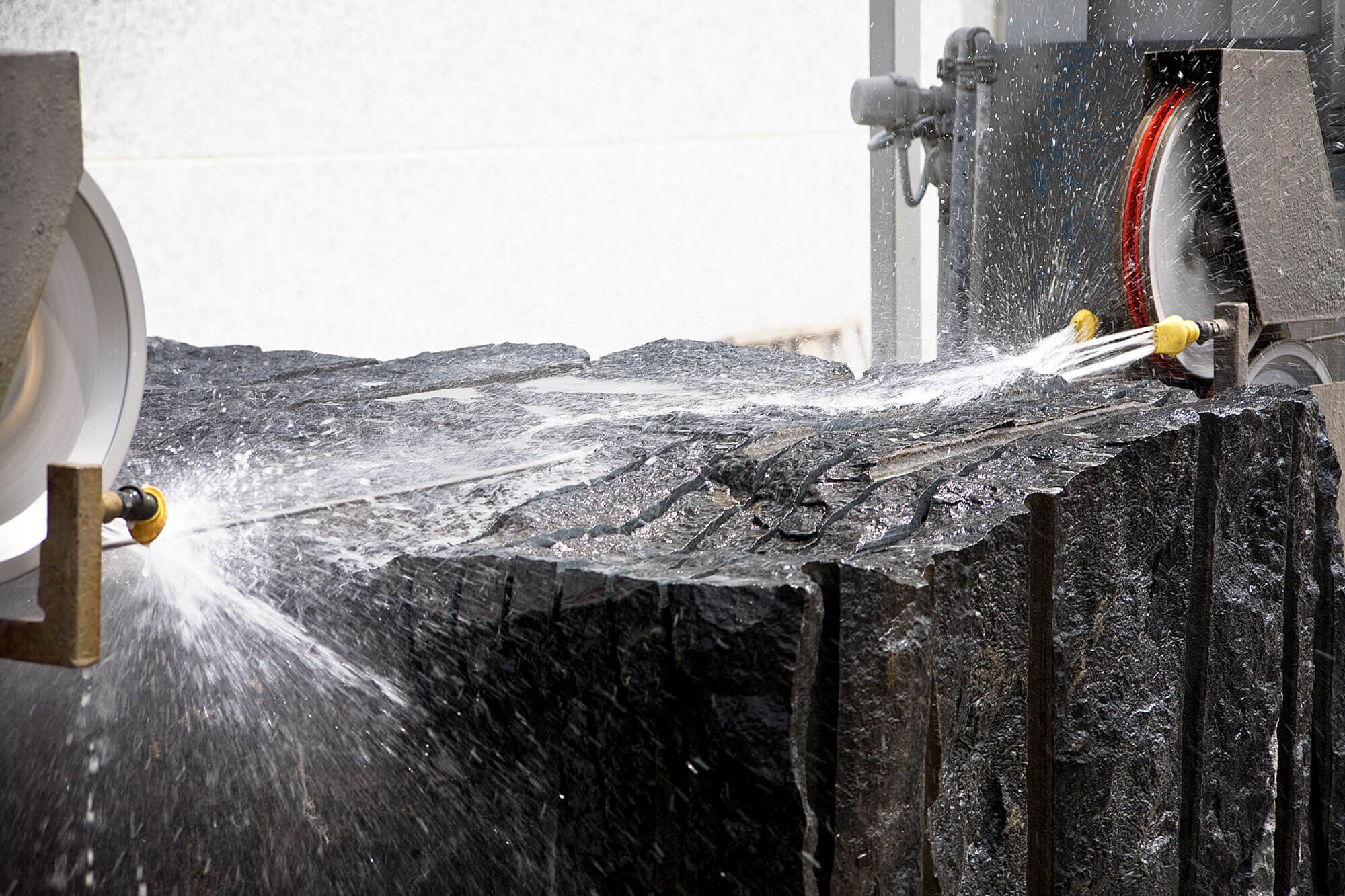
4. What type of stone is granite?
Granite is the oldest igneous rock in the world, believed to have been formed as long as 300 million years ago. Igneous rocks are formed when magma cools and solidifies. The minerals that make up an igneous rock cool slowly, allowing crystals to form. The crystals give granite its character. Each granite slab is a piece of art, thanks to minerals, magma, and millions of years!
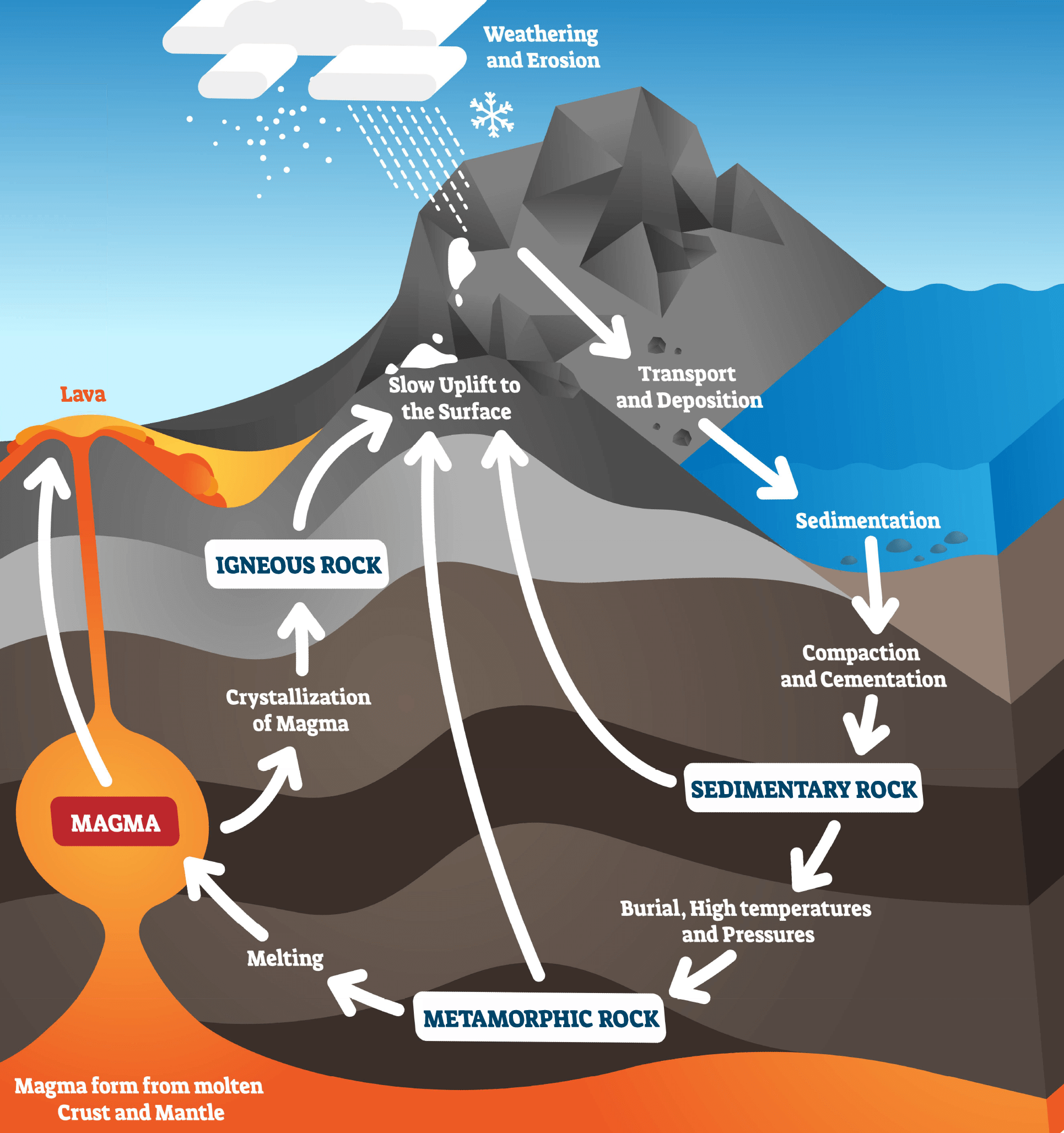
5. Do I need to seal granite?
Yes, but don’t worry, sealing your granite is a simple process. The sealer helps resist stains and allows the spill to be wiped up. When granite is sealed correctly, water droplets will remain on top and not soak into the stone. Sealing consists of spraying or wiping on the sealer, letting it sit for a few minutes, then removing any remaining sealer. Granite typically needs to be resealed yearly, some colors more often while others less frequently.
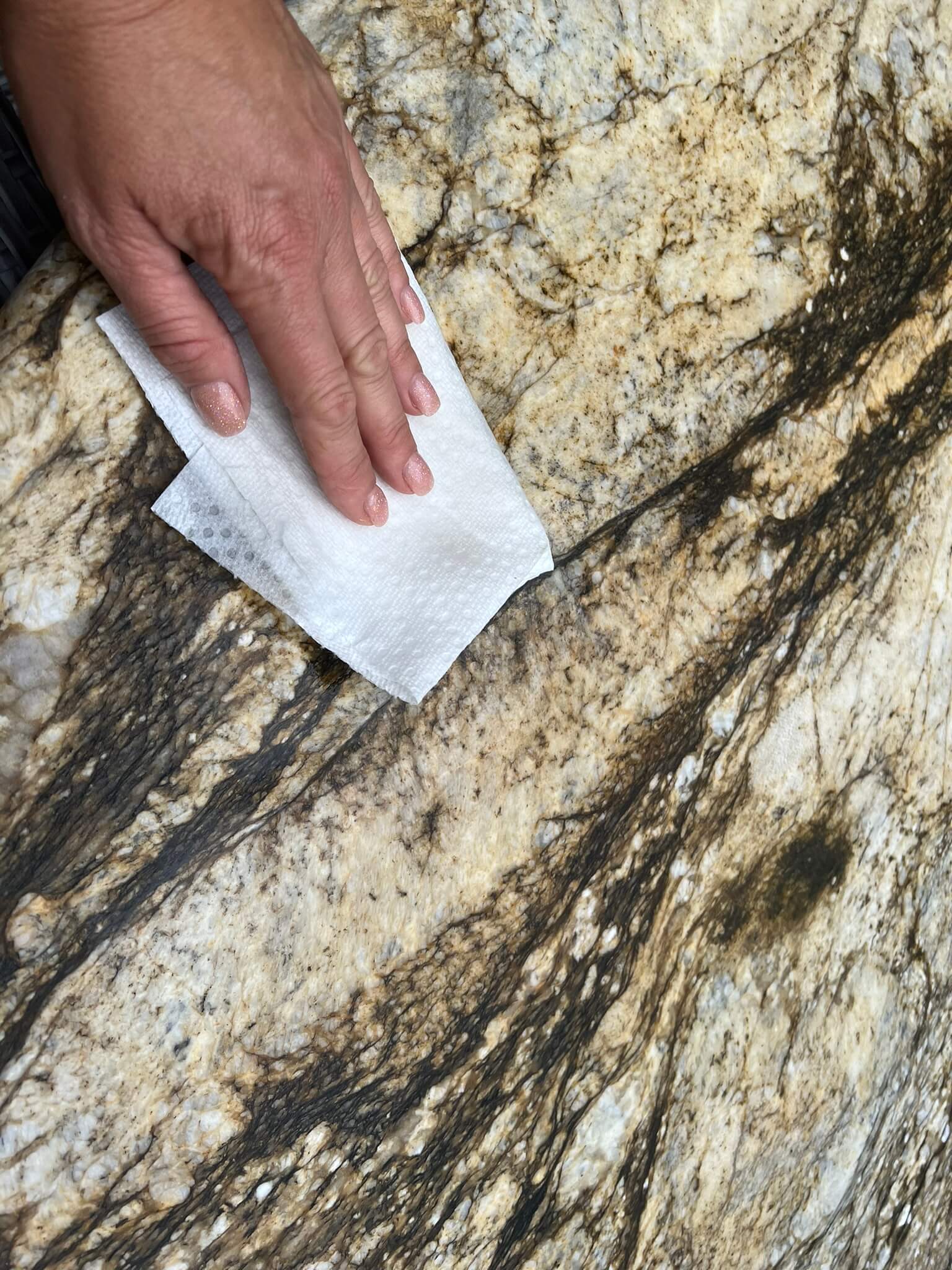
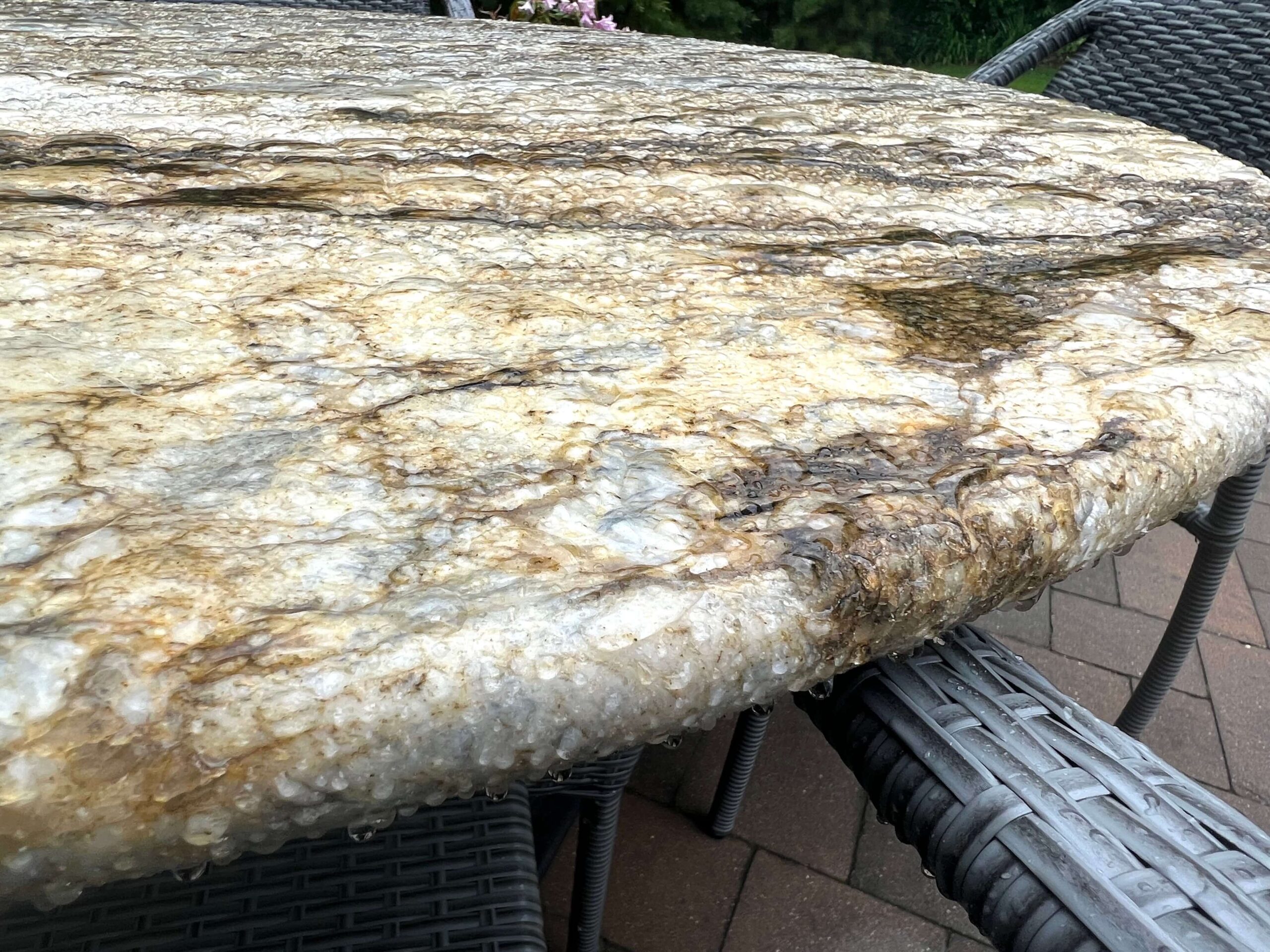
6. Can granite stain?
Yes, granite can stain, but so can other countertop materials. Granite countertops are meant to be used! Your countertops see a lot of life; granite is an excellent choice for your countertops. Be mindful of sealing your granite and wiping up spills to ensure the longevity of your stone. Many times, stains are not permanent. Many great products can pull out the stain, such as a poultice stain remover.
7. How do I clean granite countertops?
Less is more when cleaning granite countertops. Use a microfiber cloth with water only to wipe up spills. If more attention is needed, use a little dish soap mixed with water. Make sure to wipe off any remaining dish soap as the residue left behind may cause a cloudy appearance. Many safe granite cleaners on the market always follow the manufacturer’s guidelines. If hard water stains are marking up your granite, a poultice can be beneficial in removing the marks. Another method for eliminating watermarks is to use a straight-edge razor blade and super fine steel wool #0000. With the blade on an angle, scrape the hard watermarks off the granite and follow up with steel wool. Remember, wiping away standing water will prevent water stains from occurring in the first place. Not always realistic, countertops get used, and standing water will likely be a daily occurrence. Understanding how to clean them will help your granite look new for years to come.
8. Can I put hot items on granite?
Yes, granite is heat resistant and can withstand some heat from cooking pots and pans without damage; however, over time, heat can dull the surface. Your countertops are an investment; why risk it? Use a trivet or hot pad when placing hot items on your granite. Brief encounters of heat to your granite countertops will not damage them.
9. Can granite countertops be used outside?
Yes, granite has been used outside for years. Formed in the earth, granite can withstand outdoor applications. Some granite does better than others outside. For durability, choose dark or tightly patterned granite for outdoor applications. Remember to seal outdoor granite and cover in the winter if you experience ice and snow.
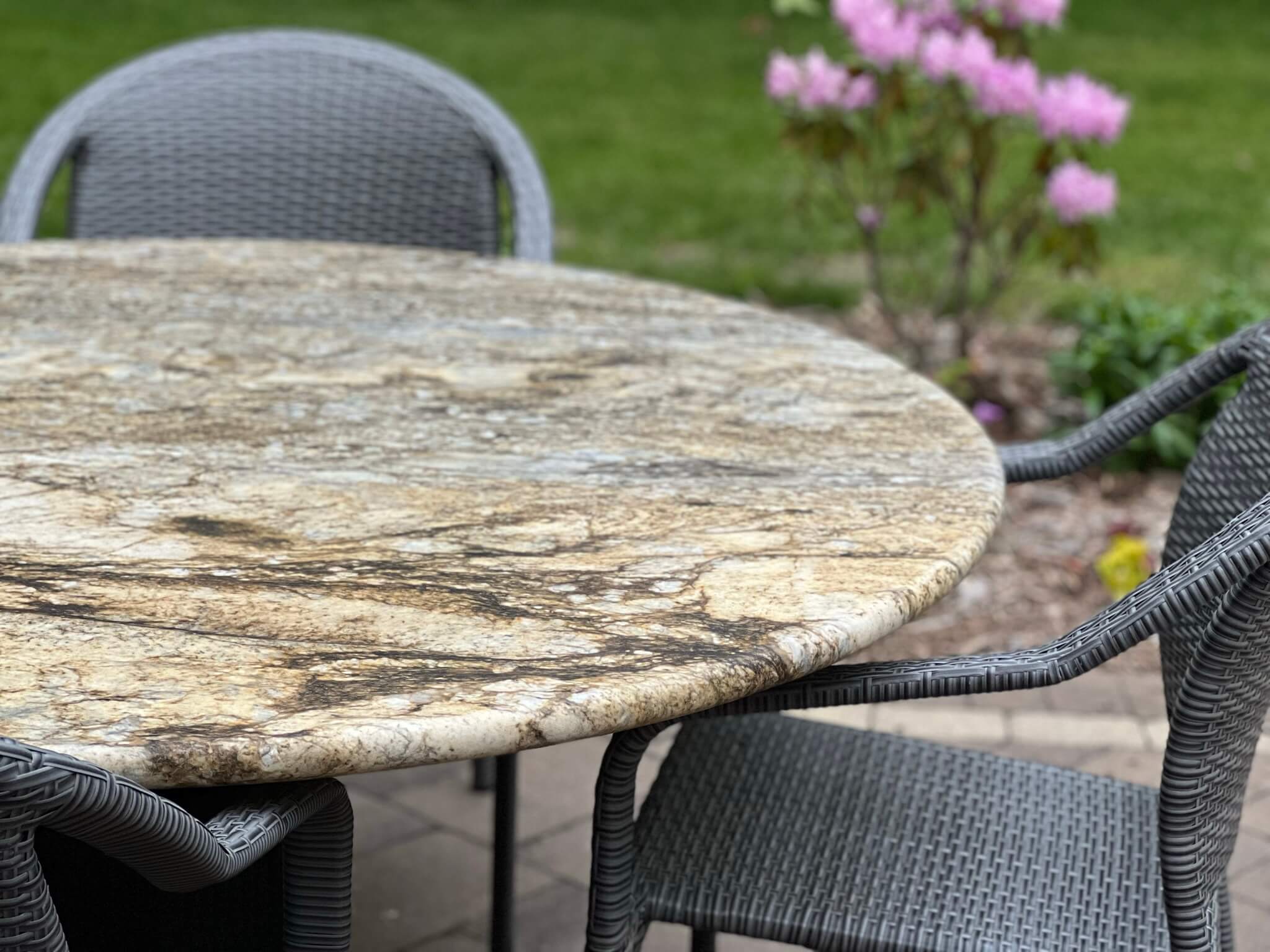

10. Are granite countertops more affordable than quartz?
Yes, granite is typically more affordable than quartz. Some granite slabs can cost more due to the amount of veining and movement throughout the slab. Granite with veining and unique patterns may have less availability, driving the cost up. In addition, Granite with a lot of movement can take longer to fabricate, affecting the overall price. Other natural stones besides granite can cost significantly more than quartz, such as quartzite and marble.
11. How large of an overhang can I have without support?
Granite countertops can have a 10-inch overhang without support. Want a more significant overhang? Several companies sell hidden brackets which can attach to your cabinets or walls and assist in supporting larger overhangs. Pre-plan and know what size overhang you want.
12. Can a chip in my granite countertop be repaired?
Good news: chips in granite are repairable and often unnoticeable after the repair. Homeowners can attempt to repair a chip themselves or call professionals. If you purchase a kit or call for help, epoxy is used to fill the chip. Color matching the epoxy will make for a pleasing result. There are many DIY granite chip repair kits sold. However, professionals have more experience and equipment to repair your granite. Life happens, and chips can occur, but granite is very repairable.


